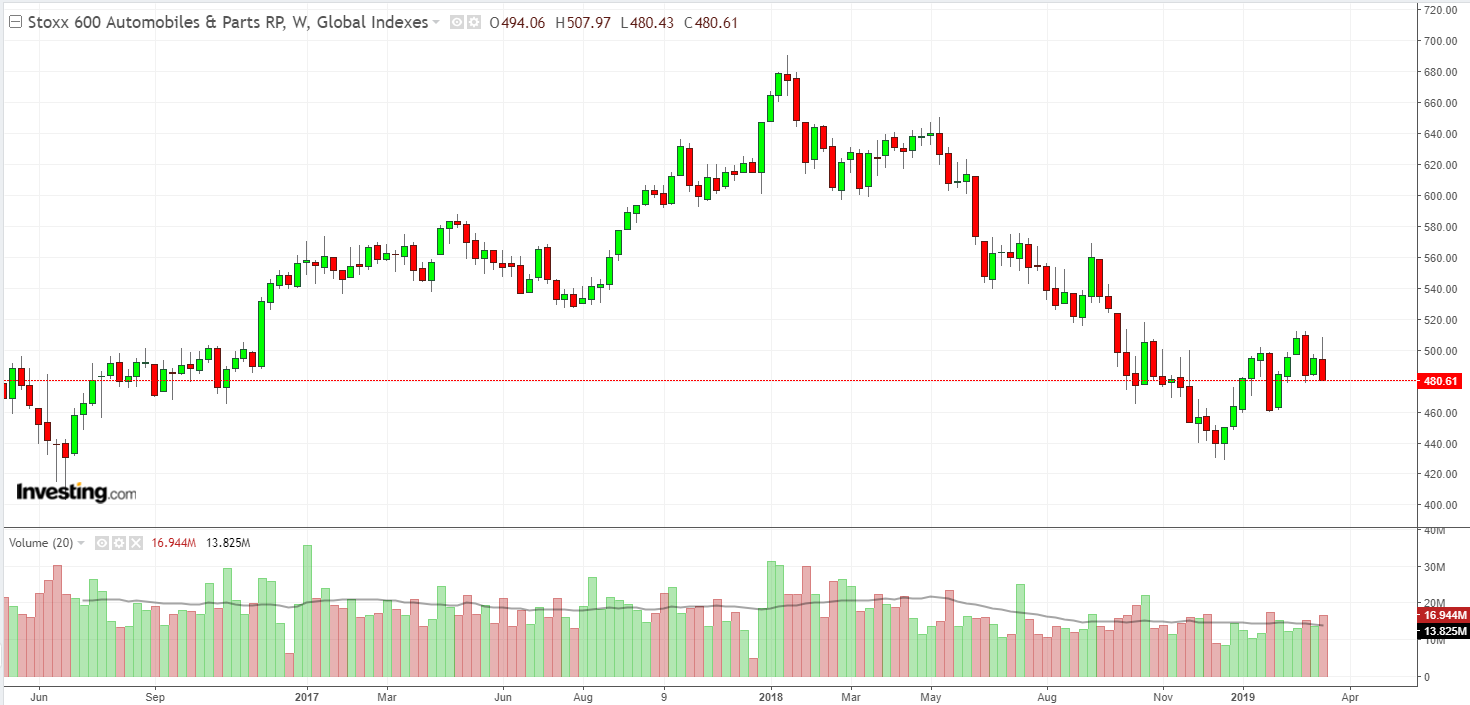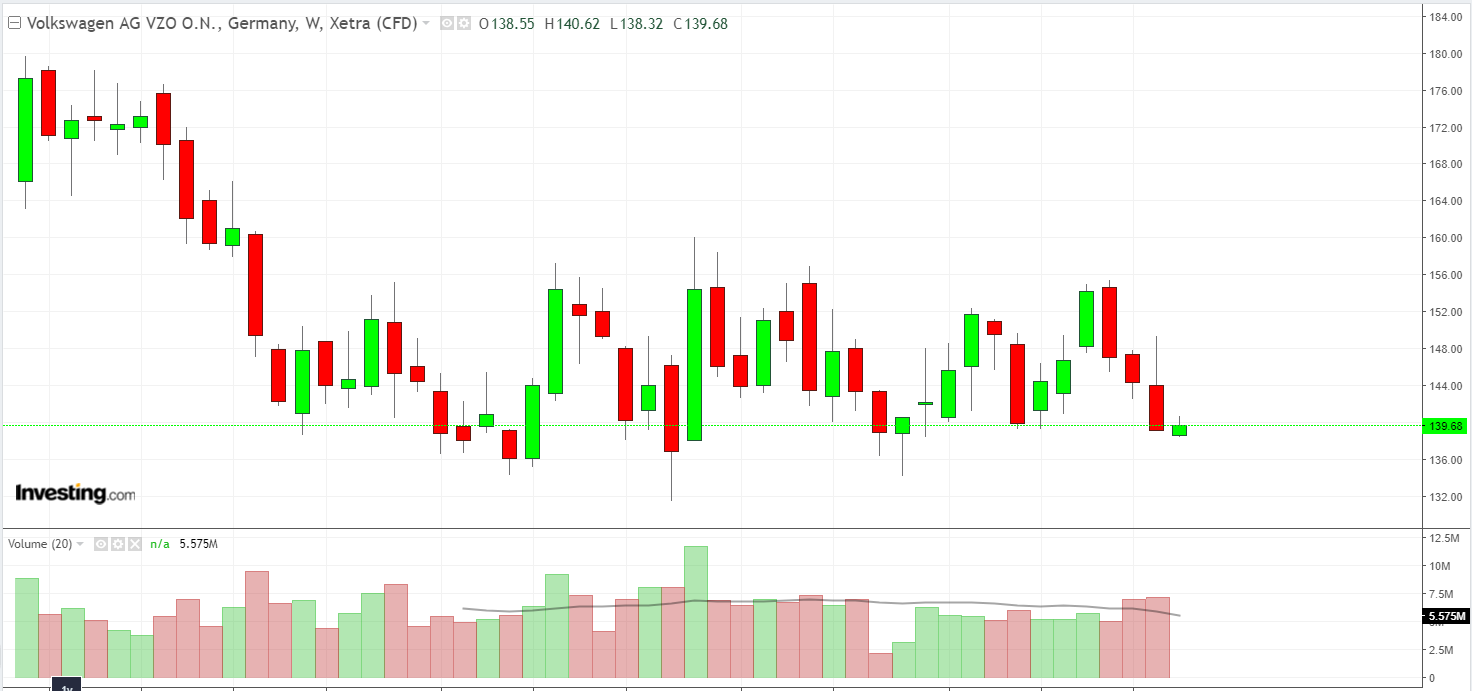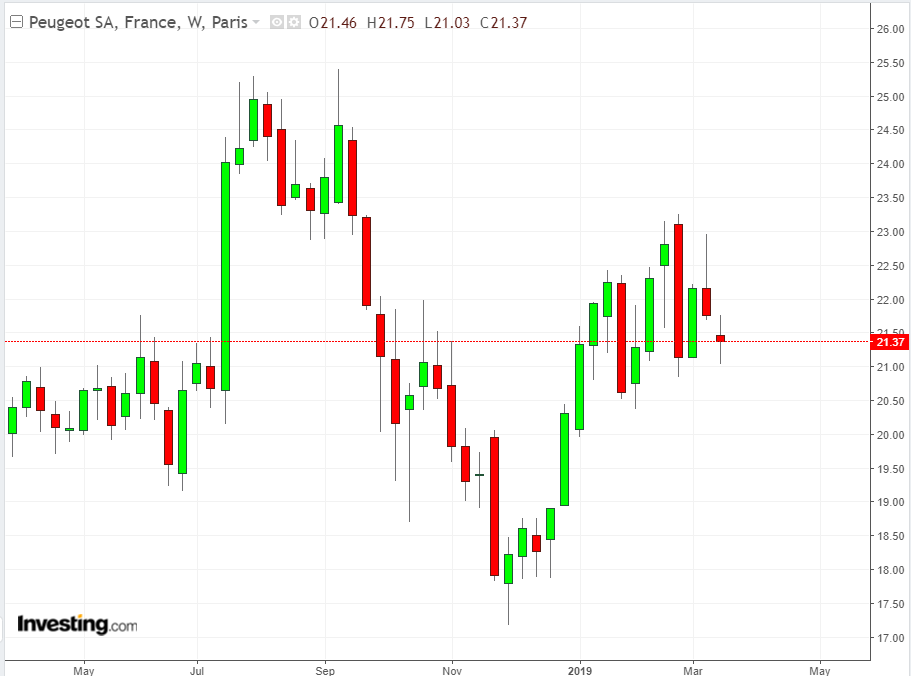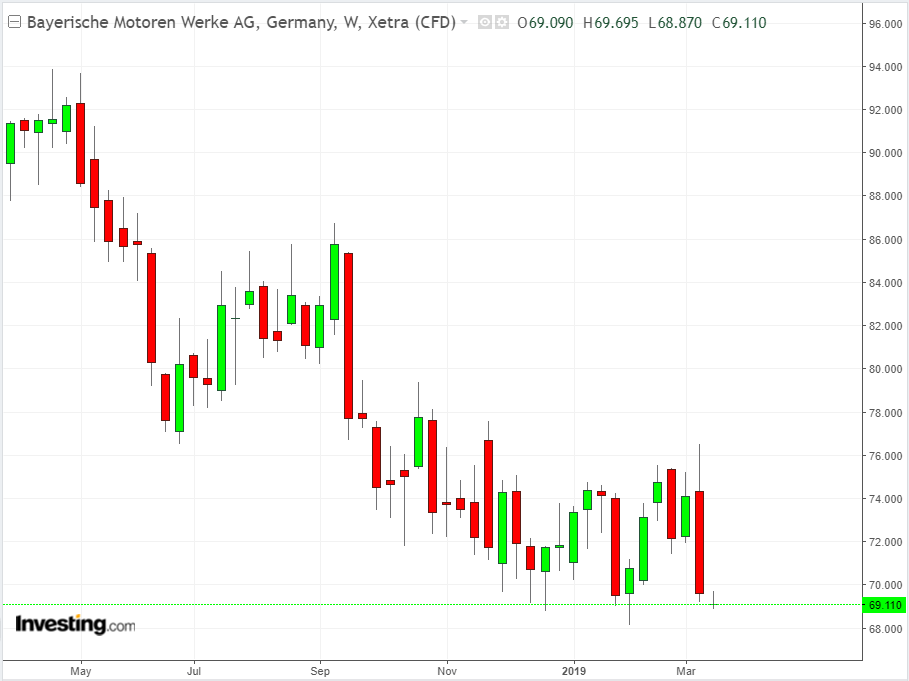Shares of European carmakers may have further to fall as President Donald Trump contemplates whether to slap punitive tariffs on their U.S. sales, adding to factors already dragging down the sector, such as slowdowns in Europe and China and the costly race to develop electric and self-driving vehicles.
Trump has until the middle of May to consider the findings of Commerce Secretary Wilbur Ross’s investigation into whether vehicles imported to the U.S. pose a risk to national security. Ross submitted his report last month. Trump will have an additional 15 days to act if he is to implement any protective measures.

The Stoxx 600 Automobiles & Parts RP Index (SXAP), has declined 22% over the past year amid pressures affecting the automotive industry worldwide. It has gained 11% since the beginning of the year on optimism about an eventual breakthrough in Trump’s trade negotiations with China.
“The whole tariff issue is not yet fully discounted,” Giorgio Vintani, partner and portfolio manager at Canara Capital Partners, said in a March 19 interview. “This is a political decision and it’s rather unpredictable.”

Volkswagen (OTC:VWAGY), (DE:VOWG_p) shares have slumped, down 7.7% over the past year; BMW (OTC:BMWYY) (DE:BMWG) shares have declined 16% over the same period.

On the other hand, shares of Peugeot SA (OTC:PUGOY), (PA:PEUP), which also manufactures Citroen, have gained 18% since the end of 2018.
“What the market has been telling you is that there is no rush to come back into these stocks,” Vintani said. “Most people would want to be risk averse,” he said, adding that he doesn’t currently have a position in carmakers. “I’m waiting to see whether there is an improvement in the conditions.”
Given the U.S. is the No. 1 destination for cars built in the European Union—accounting for "29% of the total EU export value" according to figures from the European Automobile Manufacturers Association (ACEA)—the tariff increase would hurt. Trump has set out to bolster American manufacturing as one of the main themes of his presidency. Last year, a quarter of all U.S. car imports came from the EU, according to ACEA figures.
A particular sore spot for Trump, as well as a recurring theme in his tweets, is the U.S. trade imbalance vis a vis German automobiles. In 2018, Germany sent $18.65 billion worth of passenger cars to the U.S. while Germans only bought $5.8 billion of American cars, leaving a gap of $12.81 billion, according to ACEA data.
German carmakers would be most affected by the questionable, punitive U.S. import tariffs. Based on the share of the U.S. market in their total unit sales last year, derived from data available on their websites, BMW and Daimler's (OTC:DMLRY), (DE:DAIGn) Mercedes-Benz brand would be the worst hit.
In 2018, BMW’s U.S. deliveries accounted for 14.3% of the company's worldwide total. The U.S. had a 13.7% share in Mercedes-Benz worldwide deliveries last year, while at Volkswagen, the world’s largest automaker, U.S. sales made up 5.6% of the total.
If Trump were to impose additional import duties of 25%, German car exports to the U.S. could fall by almost 50% in the long term, according to Germany's Ifo Institute think tank. These tariffs would reduce total car exports from Germany by 7.7%, or 18.4 billion euross ($20.9 billion), the Ifo said in February.
At the moment, France’s Renault (PA:RENA) and PSA, the Peugeot Group, don’t sell any cars in the U.S. But that may change. PSA plans to boost its sales outside Europe by 50% by 2021. Carlos Tavares, PSA’s chief executive, said in February that the company is contemplating a U.S. re-entry for its Peugeot brand but is waiting for the outcome of tariff negotiations before pulling the trigger.
The prospect of U.S. trade levies is just adding to existing headwinds for European carmakers. However, perhaps the most important factor behind the weak share price performance is the slowdown within their home markets. Earlier this month, the European Central Bank radically cut its economic growth forecast for the euro region in 2019 to 1.1% from 1.7% previously.

The latest carmaker to sound the alarm was BMW this week, warning that it expects pretax profit to decline at least 10% this year and it embarked on a 12-billion euro efficiency program to offset the effect of trade concerns and a shift to electric cars.
Since the car industry is a cyclical sector, Vintani said, an economic upturn should benefit them. Value investors might be tempted by these share price levels “and take a position if you think the companies can survive this kind of impact,” he said. But, he noted, among cyclical sectors, payment and technology shares in the U.S. offer better opportunities.
